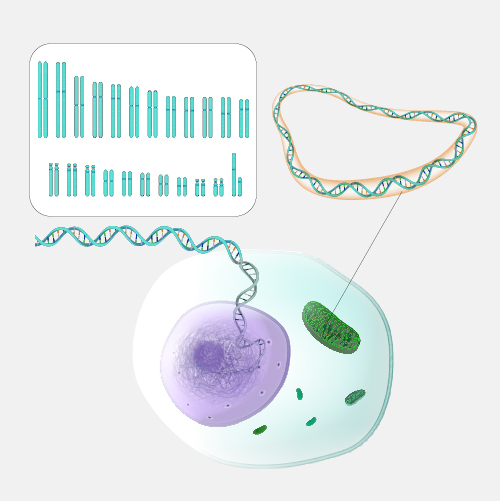
Secondary Genomic Finding
Definition
A secondary genomic finding refers to a genomic variant, found through the analysis of a person’s genome, that is of potential medical value yet is unrelated to the initial reason for examining the person’s genome. In certain cases, a secondary genomic finding might offer clinicians the chance to identify a previously unrecognized risk for disease that could change the medical management of that patient and potentially prevent or more effectively treat the disease.
Narration
Secondary genomic finding. Secondary findings are in a way an added bonus for having a person's genome examined for some disease or symptom they may be having. It's sort of like finding a spot on a chest x-ray done for some other reason in time to identify and remove an early cancer or finding an unusually low blood count in a test looking for signs of an infection. About 1 in 25 people who have their genome analyzed will have a variant that suggests doctors should change something about their care, such as looking more carefully for a cancer or heart condition or inserting a specialized kind of pacemaker to prevent sudden death. Sometimes secondary findings are things people would prefer not to know about, such as risk of a disease that has no treatment, so they should understand the chances of such findings before their genome is examined.





